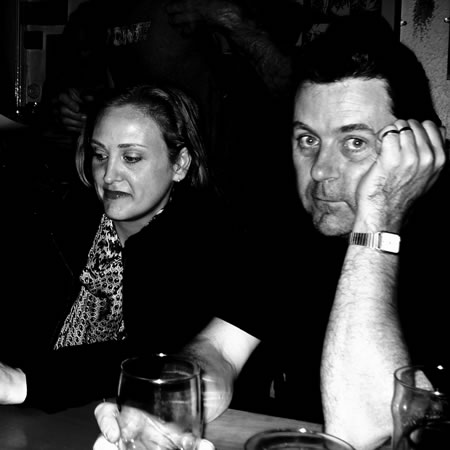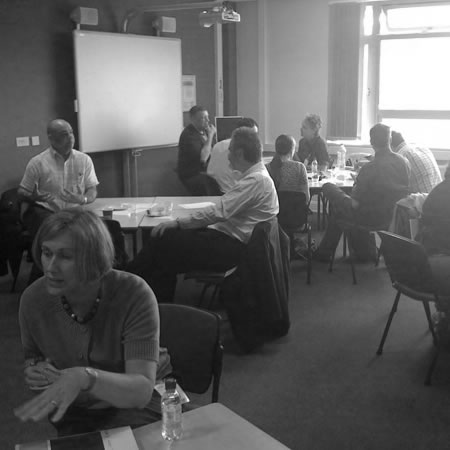I really enjoyed ALT-C last week and not just because I won an award. It was an excellent conference and I found it a very rewarding experince from both a delegate’s perspective and as a presenter.
It was really nice to meet up with a lot of different people, some I knew, some I knew only from the web, some I had never met and those that knew me though I didn’t know them.
There was some great presentations, workshops, keynotes and debates and I felt I learnt a lot and was given a lot to think about.
I had a reasonable journey up to Manchester (no connectivity on the train) and having arrived, caught a taxi to the venue. I was relieved to see that my Glossy Poster had safely arrived though for some unknown reason at that time my flyers for my workshops and that symposium had failed to arrive.
I bumped into a few people I knew and then someone came up to me and said hello. I recognised him, but couldn’t name the face… I hate it when that happens, and after turning over their name badge (why do they always flip the wrong way at the wrong moments) I saw it was Richard Elliot from New Zealand. I am doing the keynote at ASCILITE 2009 conference so it was good to meet one of the organisers to chat and discuss the conference.
After the pre-conference buffet and chatting I headed up to the F-ALT event on post digital and managed to catch the last bit and added a little to the discussion.

These fringe events add a lot to the conference, they’re not competing with the conference, but adding a social, informal side to the conference that allows delegates to add a social learning element to the conference. It also allows delegates to discuss and present issues on stuff and technologies which at the time of the abstract submission deadline maybe wasn’t available or didn’t even exist.
Tuesday morning, saw a bright and early start with the conference kicking off proper at 9.00am. After the conference introductions we moved onto the conference keynote from Michael Wesch.
It took tens of thousands of years for writing to emerge after humans spoke their first words. It took thousands more before the printing press and a few hundred again before the telegraph. Today a new medium of communication emerges every time somebody creates a new web application. A Flickr here, a Twitter there, and a new way of relating to others emerges. New types of conversation, argumentation, and collaboration are realized. Using examples from anthropological fieldwork in Papua New Guinea, YouTube, classrooms, and “the future,” this presentation will demonstrate the profound yet often unnoticed ways in which media “mediate” our conversations, classrooms, and institutions. We will then apply these insights to an exploration of the implications for how we may need to rethink how we teach, what we teach, and who we think we are teaching.
Don’t get me wrong, I really enjoyed his presentation and presentational approach, however I do wonder and still wonder if all our learners are like his students? Are all our learners using Facebook and other Web 2.0 tools and services on a regular basis and importantly are they using them for learning?
I don’t see a Google Generation or Digital Natives in the learners I work with. Some are using Facebook and other tools, many are not. Those that are, not all are using these tools for learning.
See what you think from the recording.
I enjoyed the short papers on staff skills, some of the work that Alan Cann is doing at Leicester is very illuminating and interesting.
Then lunch and I won’t dwell on the conference catering, all I will say how much I enjoyed the coffee from the Museum Cafe across the road from the conference venue.
After sustenance we had the big debate, you know, the one about how the VLE is Dead! The debate was a lot of fun and it would appear that the delegates who attended enjoyed the debate. In a room with space for eighty, we had nearly a hundred and fifty people, many sitting and standing. We also had about two hundred people online following the live stream.

Photo source
The debate was based on the following proposition.
The future success of e-learning depends on appropriate selection of tools and services. This symposium will propose that the Virtual Learning Environment (VLE) as an institutional tool is dead, no more, defunct, expired.
I know that most people realised that the debate (and especially the title) was provocative and that the aim was for a fun debate as well as looking at the issues. You are not going to be able to give serious academic consideration to the issues in an eighty minute debate.
I was pleased with the interest shown, not just at the conference, but also online on Twitter and on various blogs. Cloudworks has a list of the blogs that have discussed the issue. The “marketing” for the debate worked well (probably better than expected) with the trailer, the flyer and the numerous blog posts by me, Steve and many others…
As expected, I didn’t get to the next session, but did make Steve Wheeler’s Twitter session. A very popular session with lots of different people attending, some like me who are immersed in Twitter to people who had never used it.
After all that I missed the new ALT Members Reception, and as Gloucestershire College joined ALT this year I should have been attending. Ah well.
In the evening I went to a nice Tapas bar with Ron, Lilian and David.
More later…









